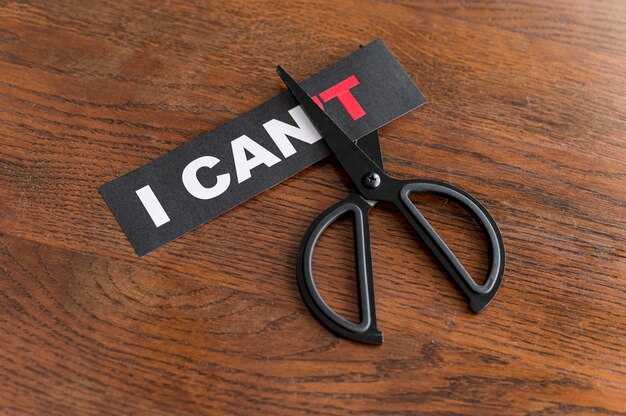It wasn’t physical violence. It was quiet. It manifested as hushed comments, the sudden hush when you enter a room, forced smiles, realizing you’ve been removed from the group chat, and that heavy, unmistakable feeling that you don’t belong. Here’s the hard truth: no one calls it out by name — female bullying. It often begins under the guise of friendliness and then can turn downright vicious. If you’ve ever been the target of a woman’s smear campaign, you know — as I came to know — that it can be baffling. You may never learn the reason a circle of women has turned on you, yet they can inflict real harm. In this piece I want to describe how female bullying shows up, how it unfolds, how it feels, and what you can do about it. I’ll begin by sharing what happened to me.
When my first child was about to arrive, my partner and I rented a house on the edge of town on a very long cul-de-sac by wild land and woods. Of the 20 or 30 homes there, five families happened to be expecting their first children within a few months of one another, so I was invited into a new moms’ group. I welcomed the invitation — I felt isolated out there and hoped to make mom friends. At first, everything seemed fine. My partner and I married, then had a second child, and I tried to stay engaged in neighborhood life. But an awkward pattern emerged: this group loved to drink — often heavily — and at most evening gatherings the adults would be completely wasted. My partner was, and has been, a long-term sober alcoholic, so out of respect for him and because I was raising small children, I didn’t drink either. When everyone else is getting sloppy drunk, a non-drinker can quickly feel excluded. There was also a cultural mismatch: many were relaxed, babywearing types I couldn’t emulate because I had to keep working to pay rent, so I couldn’t be the always-at-home mom I might have wished to be.
Then something shifted, and the warmth turned cold. It began with small things: odd looks exchanged when I was in the group, an email chain that left me off, a rude joke at my expense that I felt I couldn’t call out without being labeled oversensitive. I laughed it off, played along, and hoped it would pass. At a neighborhood potluck, I found people refusing to speak to me; my questions were ignored and I left feeling humiliated. On Halloween, my little boy and I dressed up and waited to join the others for trick-or-treating; as it grew dark, nobody came. Our porch bowl of candy sat alone, the jack-o’-lantern lit and unseen. I called, no one answered. Walking down the dark street with my son to knock on doors, we turned a corner and there they were — moms, dads, and kids, all together at a house having finished trick-or-treating without us. When I asked what happened, they shrugged that they “must have forgotten to tell you” the plan, but their choice to avoid our end of the block felt deliberate. My son wanted to stay and play; I couldn’t pull him away, so I sat through a long, awkward interval while no one spoke to me. I couldn’t get away fast enough.
That night I put my child to bed and did my daily practice, which helped me calm and clarify my thinking. The daily practice is the method I’ve used for decades to regulate my nervous system, clear my mind, and access intuition and insight — a couple of simple techniques I teach freely — and if you’re curious there’s a link in the description, the second link, to learn it. The next day I knocked on the door of the mother whose child was my son’s favorite, thinking she could explain the sudden coldness. We carpooled to preschool together, and I was angry and hurt as I asked what had happened. That’s when I discovered she’d started the smear campaign.
About a month earlier I’d told her husband we couldn’t carpool anymore because my car’s back seat only fit two car seats and, with a new baby, I now had two children of my own. One morning he begged for help, saying their car was broken and it was an emergency. Reluctantly, I agreed and drove their child to school in the front seat — legal at the time for a child that age — with the seat pushed back, driving carefully. That was all. Somehow this encounter was exaggerated and transformed into a narrative she believed: that I had recklessly endangered her child. She told everyone I was dangerous and unfit around kids. That accusation is grave and false. When I explained the circumstances — that he asked me and I reluctantly helped and the school was on a quiet mile-long road — she responded, shaking, that I had nearly killed her child and that she could never look at me again. I had no involvement in whatever issue she might have had with her husband, yet she rallied the other moms and neighbors to shun us. From that point on, we were excluded from neighborhood activities.
Around the same time, my marriage collapsed and my partner moved out, leaving me a single parent managing everything alone — a situation that sometimes seems to make people more likely to turn against a single woman. Then medical complications began: a necessary surgery went wrong, leading to four years of escalating health problems — 14 major surgeries and dozens of ER visits. My ex would step in when he could, but often I was in precarious situations alone at odd hours. None of the neighbors reached out. One woman brought dinner once, years into it, but otherwise the ostracism held firm. The rumors never stopped. An older, socially central single woman on the block amplified the “dangerous” narrative and, I later learned, told neighbors I had killed four cats — a grotesque fabrication. I’d had a cat who died of old age; in her last days I regret not having put her to sleep sooner because of my own emotional state, but I did not and could not have “killed” her. Still, the lie spread that I was harming animals. I then got a kitten and was accused of abusing it. There was even a man on the street — also an alcoholic — who regularly urinated in the backseat of my car; I caught on and began locking the car. It felt like a witch hunt.
Confronting people sometimes lifted my spirit, but there was little I could practically do. I waited for the housing market to recover enough so I could leave. The 2008 crash devastated property values and my house lost roughly 75% of its worth. Despite years of on-time payments and investments in the home, the neighborhood became underwater in value and I eventually had to do a short sale and walk away, losing the equity I might have had if I’d rented it instead. Looking back, that house could be worth a fortune now, but escaping that toxic environment was priceless. Living for ten years on that street under a coordinated female bullying campaign was profoundly unfair, yet it became a period of deep inner work and growth for me.
Thanks to the daily practice, I managed to make those years a time of intense personal development: learning to regulate my nervous system, improve my relationships, avoid repeating negative patterns with men, and create a toolkit of actions to lift my mood when I felt low. I turned many of those techniques into a list of immediate mood-boosting tips, which I’ve put in the first link in the description as a free download if you’d like them. I still use those strategies today, and they eventually became a course I offer. The bullying persisted for a long time, led by that socially central woman who invented lies and rallied others around them. I still wonder what motivated such sustained cruelty. When people treat you badly without explanation, the mind can gnaw at itself, making you feel even worse than if you’d known the worst possible reason — the uncertainty becomes another form of torment.
Eventually, things changed. I got engaged, married my current husband, moved to a happier neighborhood, and found a contented life — that, in a way, became my vindication. But I continued to ask why it had happened. Recently I put the question to ChatGPT to try to understand what might motivate such behavior. It offered several explanations that resonated. First, you might simply not be “playing the game.” Early parent groups often run on unspoken rules; if you don’t conform — if you show calm independence or refuse to perform certain rituals — you stand out and become a mirror to others’ insecurities. Second, scapegoating is common: one person who feels threatened can paint someone else as the problem, and if others are too fearful or insecure to disagree, they fall in line to reinforce group cohesion. Third, boundaries can provoke hostility: refusing to overshare or pushing back on invasive behavior may be perceived as rude or judgmental. Fourth, trauma invisibility can make people who withdraw under stress appear weak, which invites attack from those who favor dominance. In short, they didn’t gang up on you because you were inherently bad; they did it because you triggered feelings they couldn’t or wouldn’t address, and instead of doing the inner work, they bonded through cruelty and picked someone who seemed alone — which I was, especially after divorce.
I’m sharing this because this pattern is common and deeply damaging; it’s not the only time I’ve experienced women ganging up on me, but it was the most severe and consequential. After the ostracism settled in, life grew harder and I made some choices that exposed me to further risk, but I can’t help wondering whether I would have been so vulnerable if not for that initial smear campaign. Most guidance about bullying says not to confront attackers, yet I did confront them, and I’m glad I did. Even though I lost years of happiness and eventually my house, telling my side and standing up preserved my spirit. They never apologized or acknowledged what they had done, but the harassment stopped.
If this has happened to you, please share your experience in the comments — these dynamics are vicious and hurtful, and it helps to know you’re not alone. If you found this story meaningful, there’s another video I think you’ll appreciate that explains how friendships unravel; it’s linked nearby. Finally, remember that sometimes people respond to unresolved trauma by lashing out, and while that doesn’t excuse their behavior, understanding those dynamics can help us heal and respond differently.


 A Dor do Bullying Feminino que Ninguém Fala">
A Dor do Bullying Feminino que Ninguém Fala">

 Relationship EXPERT reveals Secrets to Connection: Dr. Sue Johnson">
Relationship EXPERT reveals Secrets to Connection: Dr. Sue Johnson">
 Are You Surrounded by Bullies? The Hidden Reason You Let Them In">
Are You Surrounded by Bullies? The Hidden Reason You Let Them In">
 Your Partner’s Behavior is Trauma-Related, But It’s Still Not OK">
Your Partner’s Behavior is Trauma-Related, But It’s Still Not OK">
 The STRONGEST Sign An Avoidant Still Loves You Deeply">
The STRONGEST Sign An Avoidant Still Loves You Deeply">
 If You Shut Down During Conflict, Watch This">
If You Shut Down During Conflict, Watch This">
 Se Seu Parceiro Disse Essas Frases, Ele é um Evitativo">
Se Seu Parceiro Disse Essas Frases, Ele é um Evitativo">
 Até Que Esta Mudança Finalmente Fez o Evitativo Voltar | Discurso Motivacional de Mel Robbins">
Até Que Esta Mudança Finalmente Fez o Evitativo Voltar | Discurso Motivacional de Mel Robbins">
 Para a Cura, a Ação Sã é Mais Poderosa do que Histórias Tristes">
Para a Cura, a Ação Sã é Mais Poderosa do que Histórias Tristes">
 Um parceiro precisa saber sobre o seu passado — mas o que acontece se você está apenas namorando?">
Um parceiro precisa saber sobre o seu passado — mas o que acontece se você está apenas namorando?">
 TRAFICO é para COWARDES EGOÍSTAS (como eu)">
TRAFICO é para COWARDES EGOÍSTAS (como eu)">